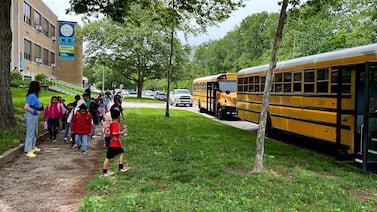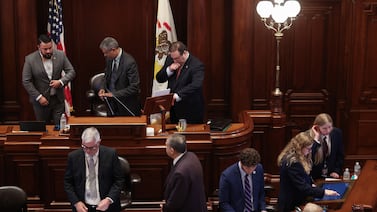New Jersey has identified 25 underperforming schools in Newark, according to guidelines under federal law.
Those schools have been identified as needing comprehensive or targeted support and improvements to raise student achievement.
Under the Every Student Succeeds Act, known by its acronym ESSA, New Jersey must ensure that all students have access to a high quality and equitable education. The act also sets minimum requirements around measuring and reporting school performance and providing support to schools that need the most help.
All Newark schools are identified as Title I schools, in which at least 40% of children enrolled come from low-income families. Under ESSA, Title I schools can be identified as needing comprehensive, targeted, or additional targeted support and improvement depending on a school performance score.
The state uses a formula to determine a performance score and identify which schools need support. Using the New Jersey ESSA accountability system, the state looks at a school’s academic achievement, academic growth for elementary and middle schools, graduation rates for high schools, English language proficiency, and chronic absenteeism and designates a score.
Comprehensive schools perform at or below the bottom 5% of Title I schools or have a graduation rate of 67% or lower. No high school in Newark has a graduation rate of 67% percent or lower, said Superintendent Roger León during February’s school board business meeting.
Targeted schools are those that have one or more underperforming student groups, such as a specific student demographic, students with disabilities, and English learners. Schools that have a student group that is “consistently underperforming” are identified as needing additional targeted support. No school in Newark was identified as in need of this, León said.
The state’s education department found eight Newark schools needing comprehensive support and five schools needing targeted support.
Additionally, two schools previously identified as needing comprehensive support moved to targeted status, two schools continue needing comprehensive support, and three schools continue needing targeted improvement.
The state also moved five schools to comprehensive II status, a designation for schools that need comprehensive support again but didn’t meet the state’s criteria to exit the category this year.
Under ESSA, these schools are provided with Title I funds meant to help schools raise the performance of the lowest-achieving students. Schools needing comprehensive or targeted support must write an action plan and receive additional funding to support student intervention strategies. Leòn did not say when schools must submit an action plan.
“The first strategy is making sure that people are aware,” said León during the meeting. “Making sure that [schools] engage stakeholders is a critical component in creating this plan moving forward.”
Of the remaining schools, 28 were not identified for any designation, six exited comprehensive status, and three schools exited targeted status this year. The schools that exited a state designation this year must write a sustainability plan.
New Jersey usually makes its school identifications using two consecutive years of data, but under the COVID-19 State Plan Addendum, the state used data from the 2018-19 and 2021-22 school years this year due to pandemic learning disruptions.
New Jersey has its own ESSA plan and requires district and school leaders to engage families and community members to help identify the challenges a school needing comprehensive or targeted support faces and create a plan to address those.
León said Newark will remind parents of their school’s status at back-to-school nights, grade-level meetings, community meetings, and at the annual Title I parent conference, usually held in the fall.
“Making sure that we’re sharing this information becomes extremely important,” León added during the February business meeting.
Jessie Gomez is a reporter for Chalkbeat Newark, covering public education in the city. Contact Jessie at jgomez@chalkbeat.org.






